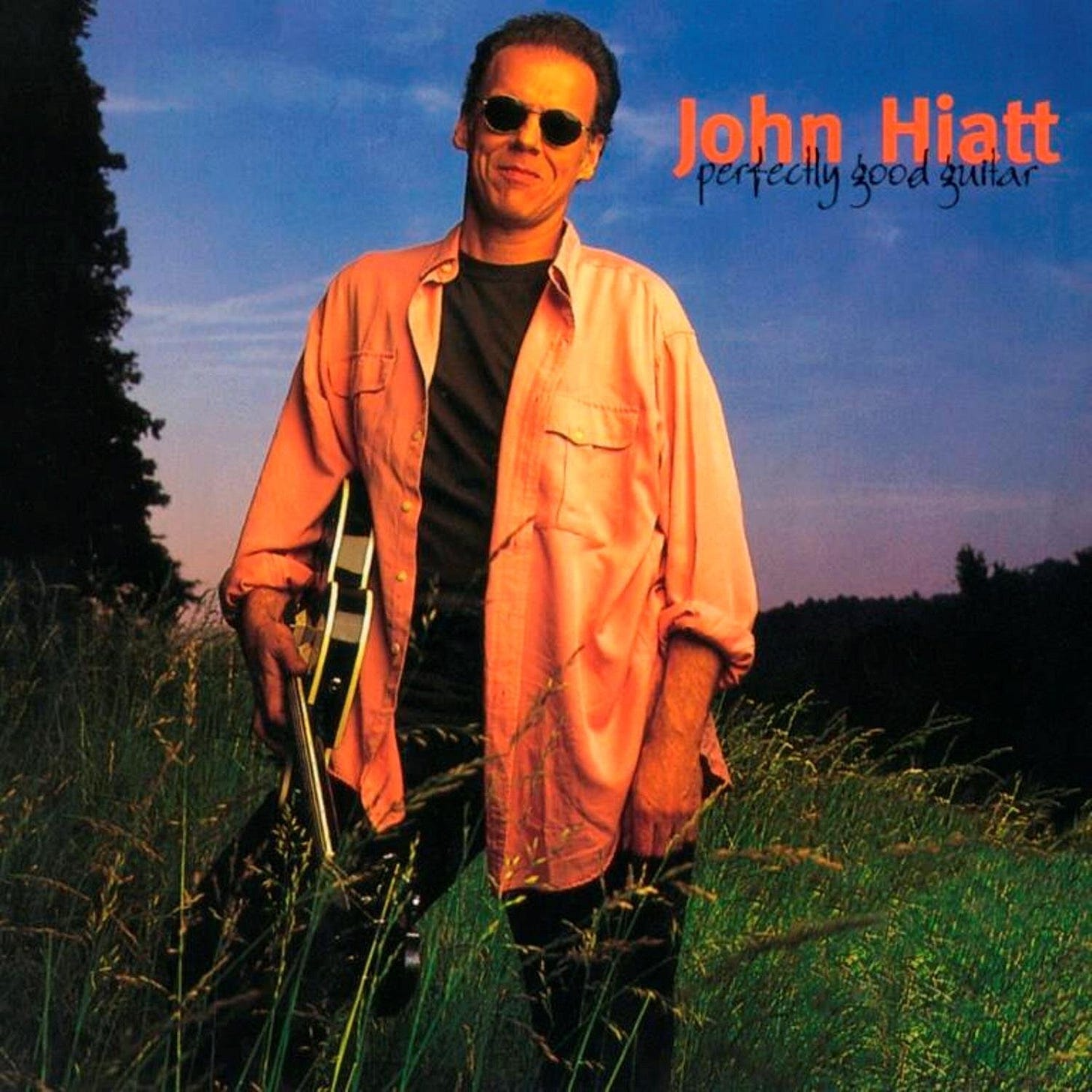From the archive: Dylan Plugz In, Big Hair Falls Flat
An exclusive outtake from “Something Wild,” Chapter 14 of 'Have A LIttle Faith: The John Hiatt Story'...
Originally published on September 17, 2021.
In writing the manuscript to Have A Little Faith: The John Hiatt Story, I took a few side roads along the way. Naturally, quite a few pages had to be cut to make the story more cohesive. In honor of the book’s release this week, however, as well as the (coincidental) release of the sixteenth volume of Bob Dylan’s Bootleg Series: Springtime In New York 1980-1985, which covers some of the period at the beginning of this excerpt, I thought it was fitting to give you a glimpse into the good old creative process at work. Here’s how the first draft of Chapter 14, “Something Wild” began…
On March 22, 1984, Bob Dylan - back in critical acclaim with the previous year's Infidels after three less-than-beloved albums that focused on his journey into Christianity - appeared on the hip, new late-night talk show Late Night with David Letterman with a band no one had seen him with before. They were three men in their early twenties, two of whom - drummer Charlie Quintana and bassist Tony Marsico - formed the rhythm section of LA Latin/punk favorites The Plugz, along with guitarist J.J. Holiday. Dylan led them through a blistering cover of Sonny Boy Williamson II's "Don't Start Me To Talkin'" and, after what seemed like a little coaxing from a giddy Letterman, then offered up two fierce garage-band run-throughs of Infidels tracks "License To Kill" and "Jokerman."
Throughout the performances, Dylan went down to his knees, hopped, slid off camera, turned on his heels, and was more animated than anyone was prepared for. As it turned out, he had been rehearsing with Holiday, Marsico, and Quintana for months prior at his home/rehearsal space in Malibu. They had no clear understanding what they were rehearsing for, but jamming on oldies such as the Spencer Davis Group's "Gimme Some Lovin'" and the Temptations' "My Girl" with a band of young punks seemed to loosen up and even inspire ol' Zimmy. He had reportedly been seen taking in area shows by the Clash and X - groups his teenage sons admired. Nothing can jolt a middle-aged man out of complacency like the power of loud rock'n'roll. Around a decade later, it was a similar scenario that provoked a by-now middle-aged John Hiatt into plugging in and turning up.
In late September of 1991, David Geffen's DGC Records released an album that they hoped would sell well in alternative rock circles. The band was Nirvana, and their previous album, Bleach, had sold respectably, but no one anticipated what would come. Nevermind not only sold respectably, it started a revolution. Like all revolutions, there were casualties and some collateral damage as the old made way for the new. The pop-metal that had dominated the airwaves and especially MTV in the late '80s and the dawn of the '90s was suddenly treated like someone you drunkenly flirted with in the hotel bar but now could see clearly in the more realistic light of the lobby: someone to shake hands with, go your separate ways, and hope no one you knew saw you during your momentary lapse of reason.
To be sure, there was great music being made in the hard rock world during that time. Revisionists love to lump all those groups under the umbrella of "hair metal" (a label that was not used at the time but was affixed retroactively in the years since). Guns n' Roses, for instance, was miles away from a group like, say, Poison. That doesn't make Poison any worse, just different. Where G n' R recaptured the dangerous swagger of Exile-era Stones and Aerosmith up through Rocks coupled with a nod toward the LA punk scene (in fact, Charlie Quintana of The Plugz was the drummer for Guns n' Roses' original rhythm guitarist Izzy Stradlin's JuJu Hounds on their 1992 debut album), Poison - in the beginning at least - was more in the power-pop tradition of the Raspberries or even Cheap Trick (listen to "Talk Dirty To Me" and imagine it slowed down to a half-time shuffle, and you can even hear an alternative universe where Marc Bolan could've had a hit with it, possibly on The Slider - where, incidentally, Guns n' Roses snatched "Buick McCane" for their all-covers album, The Spaghetti Incident?). The issue was, as always, that it became a formula for record labels to exploit and profit from, and any band with an original thought was moussed-up, spandexed-in, and trotted out in front of a giant fan amidst clouds of dry ice and told to preen and pose while singing about partying all night and sleeping all day.
You can purchase Have A Little Faith: The John Hiatt Story here. It’s also available anywhere and everywhere you buy books.


